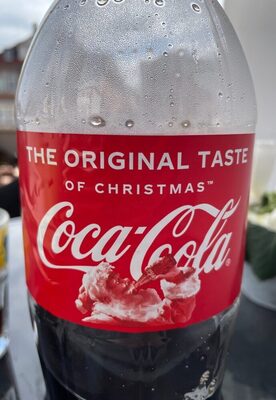
Barcode: 5000112547726
Cola
HALAL
📝 Reason: Cola contains mostly Halal ingredients; water, sugar, carbonic acid, phosphoric acid, E150d, and caffeine are Halal based on their origins and food additive status. However, ‘Natural flavor’ is a disputed term which may sometimes involve alcohol or animal ingredients; without further clarification or certification, it is Doubtful. According to Islamic law (Quran 5:3), food uncertainty mandates avoidance (IFANCA, thehalallife.co.uk).
🏷️ Category: Beverages And Beverages Preparations, Beverages, Carbonated Drinks, Sodas, Colas, Sweetened Beverages, Boissons Avec Sucre Ajoute, Erfrischungsgetranke, Getranke, Gezuckerte Getranke, Kohlensaurehaltige Getranke
📄 Certificates: Vegetarisch, Vegan
Ingredients:
Details
Understanding the Halal Status of Cola
If you’re a consumer concerned about dietary restrictions, especially regarding Halal products, you might be wondering about the Halal status of Cola. Cola predominantly consists of water, sugar, and carbonation, which are naturally Halal. However, analyzing its components reveals some complexities. Let’s explore the details to affirm whether Cola meets the Halal criteria.
Overview of Ingredients
The primary ingredients of Cola include:
- Water
- Sugar
- Carbonic acid
- Colorant E150d (Sulphite Ammonia Caramel)
- Phosphoric acid
- Natural flavor
- Caffeine
Are the Ingredients Halal?
Here we will break down the Halal status of each ingredient:
Water
Pure water is universally accepted as Halal, forming the base of Cola.
Sugar
Sugar is typically derived from vegetable sources and is Halal, provided that it is not processed with non-Halal materials. In practice, refined sugar is generally safe in beverages.
Carbonic Acid
Carbonic acid is created from bonding carbon dioxide with water and does not originate from any Haram sources. Therefore, it is Halal.
Colorant E150d (Sulphite Ammonia Caramel)
E150d is a colorant derived from caramelization of sugar. It is Halal when it is sourced from plant materials and produced without alcohol. The E150d colorant is commonly used in all types of soft drinks.
Phosphoric Acid
This mineral acid, derived from phosphate rocks, is Halal as it is not related to fermentation or animal-derived sources. Thus, it poses no Halal concerns.
Natural Flavor
The term ‘natural flavor’ can be ambiguous. It might be derived from either Halal or non-Halal sources (including alcohol or animal ingredients), creating doubt about its Halal certification. Without explicit clarification on its source, this ingredient remains uncertain.
Caffeine
Caffeine is generally derived from either plant sources or synthesized and is Halal unless combined with Haram solvents. So the caffeine used in Cola is mostly considered Halal.
Conclusion: Is Cola Halal?
The ingredients in Cola largely align with Halal standards. However, the inclusion of ‘natural flavors’ makes it challenging to confirm the beverage’s overall Halal status conclusively. Islamic law suggests avoiding products with uncertain ingredients (Quran 5:3). Therefore, while most components of Cola are Halal, those seeking strict adherence to Halal dietary laws may want to approach products with ambiguous terms cautiously.
What Should Consumers Do?
For those who want to enjoy Cola while ensuring Halal compliance, consider seeking brands or products that provide clear certification. Certificates such as ‘Vegetarian’ or ‘Vegan’ do not guarantee Halal status but contribute to further investigation.
Explore More!
For consumers inquisitive about what makes beverages Halal or want to delve into various food additives’ statuses, stay informed and consider verifying your favorite products through trustworthy Halal certification bodies.
